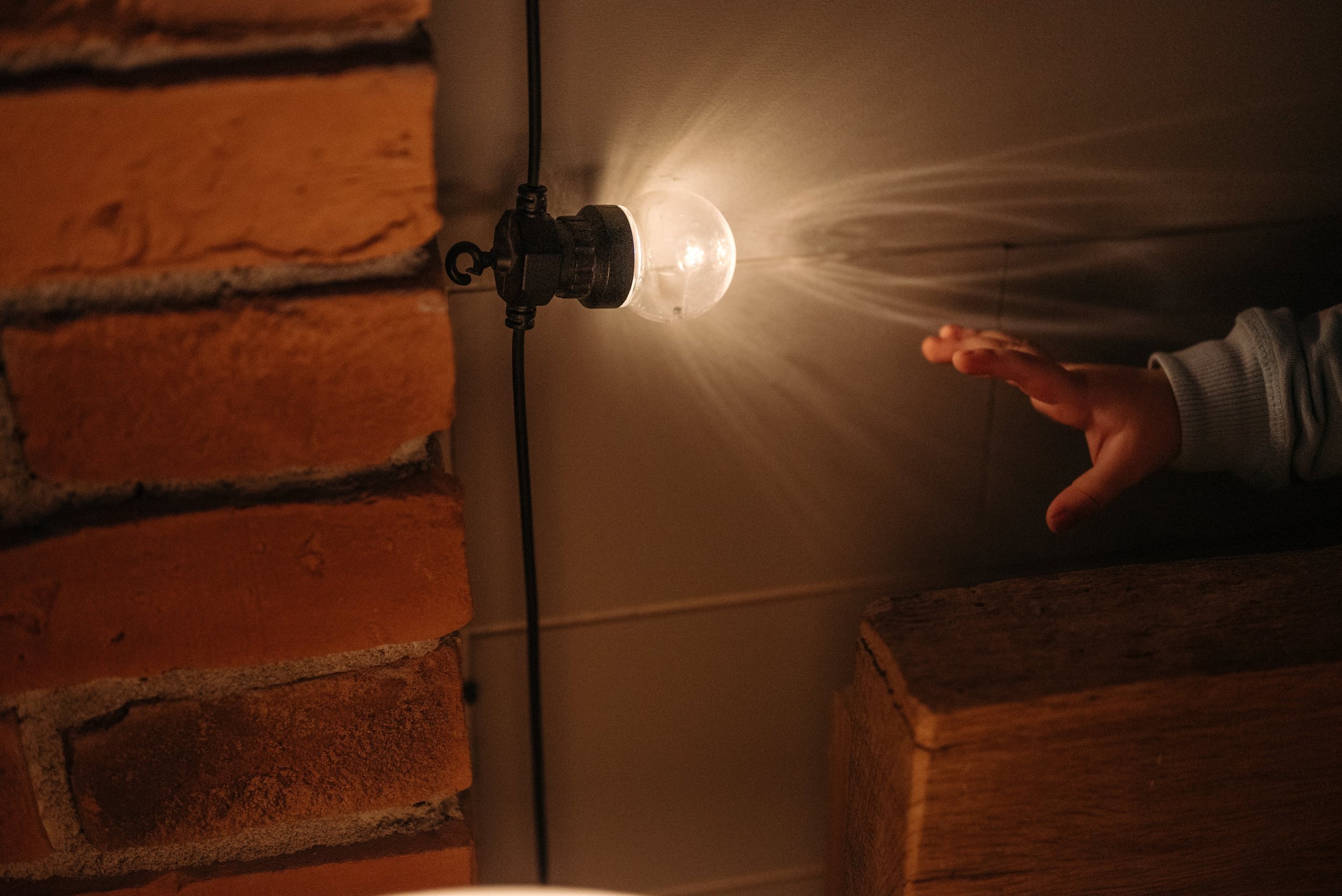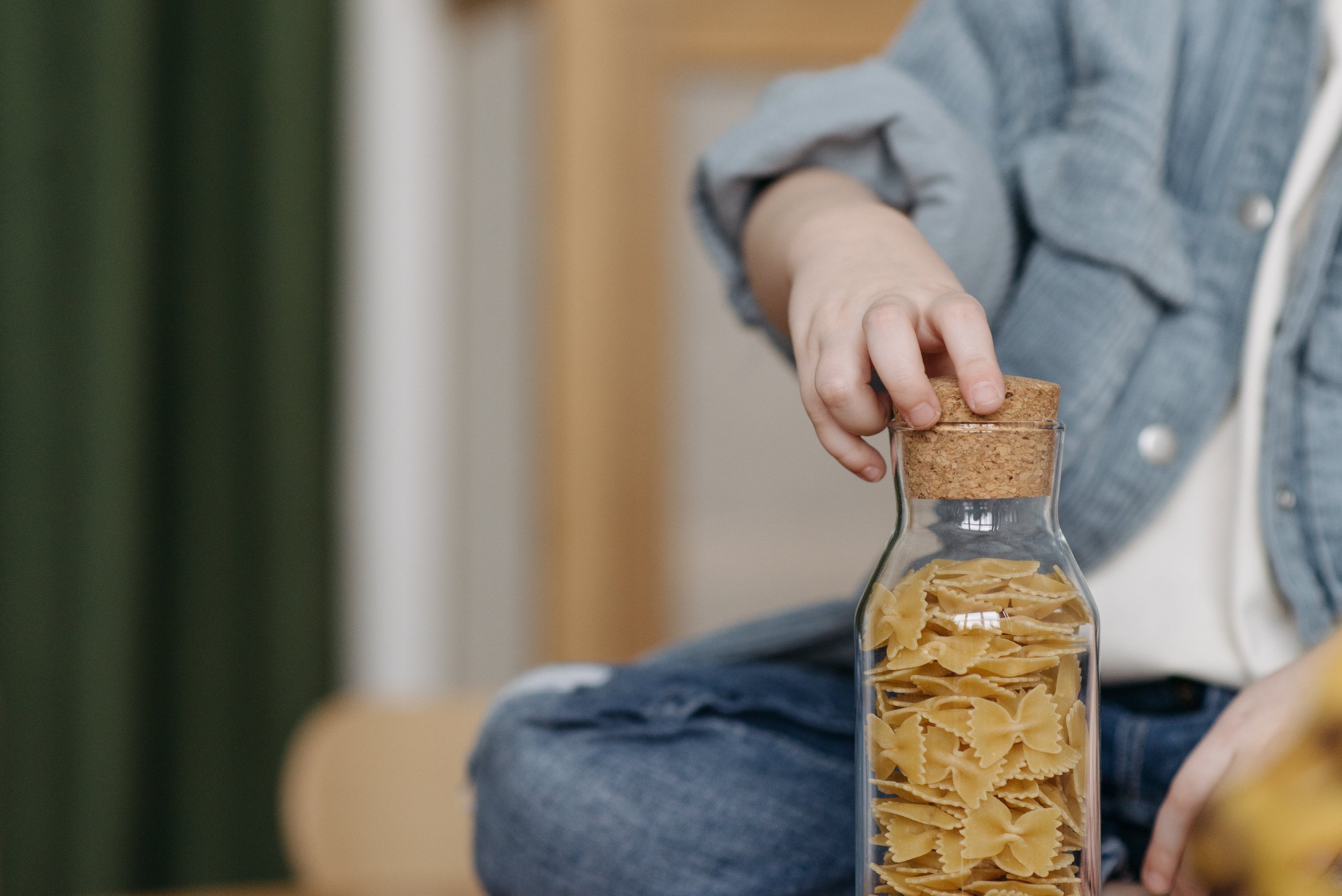5 fun DIY sensory play ideas for kids at home
3 minutes read | Written by Tink Things
Sensory play, an essential part of childhood development, doesn't require fancy toys to be impactful. Often, kids find more joy in simple items like wooden spoons or car keys, underscoring the importance and fun of sensory experiences. It stimulates crucial senses—touch, sight, hearing, smell, and taste—aiding in brain development, enhancing memory, supporting language and social skills, and fostering creativity and independence.
These sensory experiences are extremely important, not to mention fun! So let's explore some sensory activities to ignite all the senses and offer our children enriching experiences that contribute significantly to their growth and understanding of the world.
Photo by Tatiana Syrikova
Sight
Apart from providing hours of fun, sensory light activities have been shown to build children’s social and emotional skills improving important concentration levels and calmness.
Create your very own colourful light show at home with this simple activity!
DIY Sensory lights
You will need:
Torch
Coloured tissue paper
Sticky tape or elastic band
Scissors
Sparkly fabric (optional)
Directions:
Cut a few squares of each colour tissue paper, you may need to use a few sheets to layer on top of each other.
Attach the tissue paper to the light end of the torch and secure it with sticky tape or an elastic band.
Dim the lights and turn the torches on.
Shine the torch onto the walls around you and create your very own sensory light show!
Tip: You can pop the torches under sparkly fabric for a magical, colourful light-up den.
Sound
Sound and music activities introduce important skills as they develop children’s listening and communication. Additionally, music activities can aid in improving concentration, supporting physical and mental well-being, and boosting language learning abilities!
Sensory sound jars are a great way for kids to explore fun new noises!
Sound Sensory Jars
You will need:
Materials to fill your jar (for example rubber bands, marbles, coffee beans, pasta, and popcorn kernels)
A jar or container and lid
Directions:
Fill your jar (or jars) with your chosen materials
Secure the lid tightly
Shake!
Tip: For older children, clap a beat with your hands and ask them to repeat the pattern with their sound jar.
Touch
Engaging in touch-based sensory activities not only delights children with a variety of textures and sensations but also plays a crucial role in their cognitive and fine motor skills development.
Create a tactile adventure for curious fingers!
Treasure baskets
You will need:
A low sided basket
Materials to fill
Directions:
Fill your treasure basket with any household items you can collect. Aim to incorporate a variety of textures such as natural materials (eg. wooden spoons, large shells, large pebbles, a feather), fabrics (eg. scarves and ribbons), and items to smell (eg. spice bags).
Lay out a blanket in a quiet space and place your baby or child next to the treasure basket.
Observe and offer encouragement as they explore the items in the basket.
Photo by Paige Cody
Smell
Incorporating calming smells like lavender into activities is a simple way to relieve stress and anxiety in children.
With this playdough kids engage both their creative spirits and their sense of smell in a soothing play.
Lavender Play Dough Recipe
You will need:
4 cups all-purpose flour
1 cup salt
4 cups water
1/2 cup cream of tartar
10 tablespoons oil
2-3 drops of lavender essential oil
1/4 cup dried lavender flower buds
Directions:
In a saucepan, mix together the flour, salt, water, cream of tartar, and oil.
Over low-medium heat, continually stir and cook the mixture until a ball of play dough is formed.
Remove play dough from the saucepan and transfer to a surface and allow to cool.
Knead the lavender oil into the dough.
Sprinkle the dried lavender buds over the play dough and knead until evenly distributed.
Tip: For a colorourful playdough you can add a couple of food colouring drops! The play dough should last a month (or longer) when stored in an airtight container between uses.
Photo by Pavel Danilyuk
Taste
Not only is this taste test activity an exciting sensory experience, it’s also a great method to encourage our children to try new foods! Wjat is more, they can develop their vocabulary as it encourages them to learn and use descriptive words about the foods they are tasting.
Guide kids into a sensory test adventure!
Sensory Taste Test
You will need:
Several small spoons or bowls
A variety of food (include at least one salty, sour, sweet, spicy, and bitter)
Directions:
Tell them to close their eyes and ask them to choose a piece of food from the spoon.
Encourage them to take their time exploring the texture and temperature of the piece of food before tasting.
Ask them whether they thought the food was salty, sour, sweet, or bitter or a combination.
Photo by Jonathan Borba
Sensory play is not just about having fun; it's a vital part of children's development, offering rich opportunities for learning and growth through simple, creative activities. By integrating these DIY sensory activities into our homes, we provide our children with the tools to explore, discover, and make sense of the world around them in a nurturing environment.
So, grab those household items and let the adventure begin!
Written by
Tink Things is an independent future-oriented startup rethinking the principles of children’s design. With the belief that kids' surroundings should serve as food for their brains, our first award-winning line of EU made & certified sensory furniture is paving the way for a more inclusive and holistic approach to designing for children. We are on a mission to make the emotional intelligence design methodology a mainstream.










